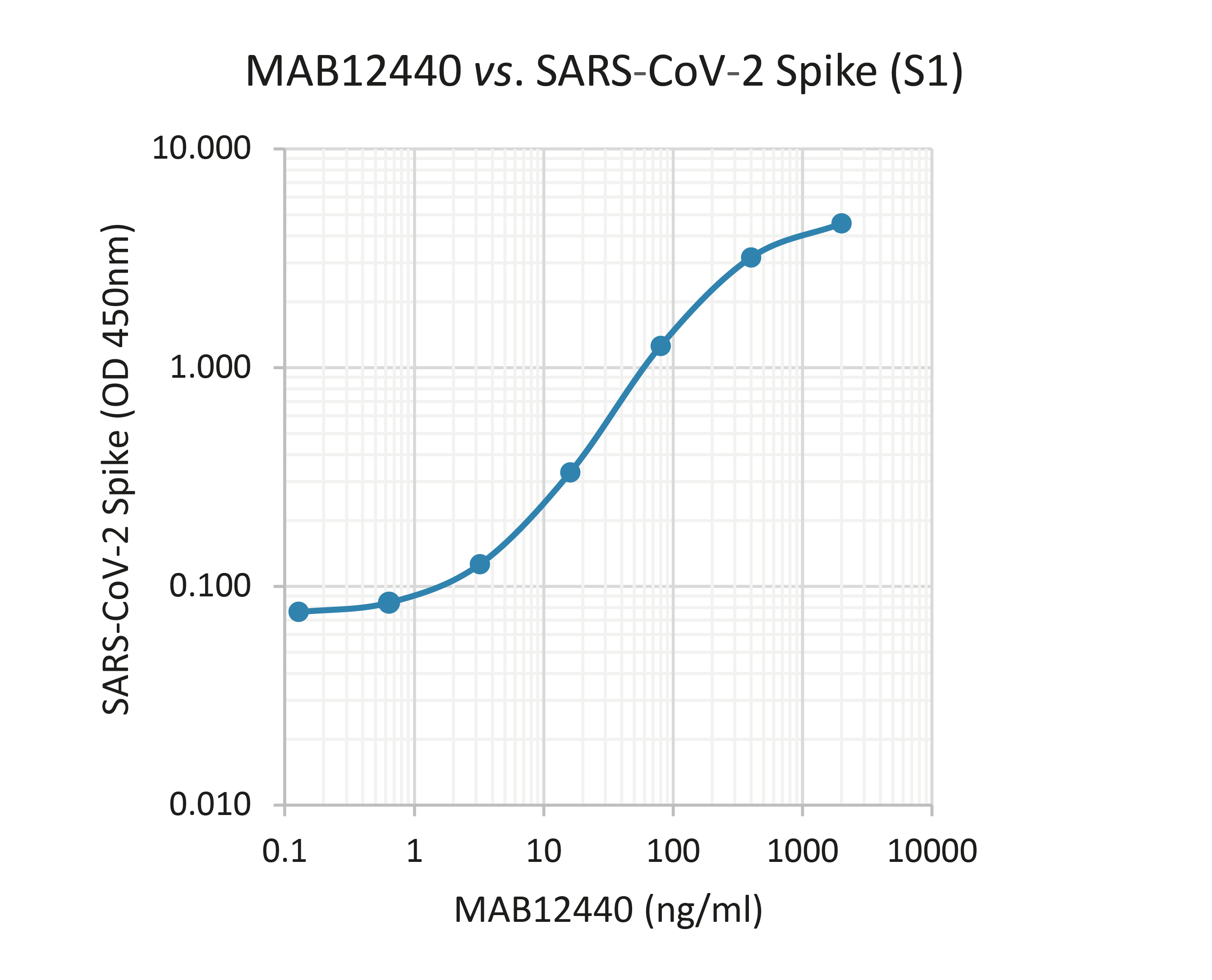New Anti-SARS-CoV-2 Spike Monoclonal Antibodies
- The Native Antigen Company now offers ten new monoclonal anti-SARS-CoV-2 IgG1 antibodies, raised with the Company’s own S1 and S2 Spike subunit antigens.
- The epitope-specificity of these antibodies has been assessed in ELISA, making them appropriate for the development of immunoassays.
- These antibodies have been screened against the Company’s other coronavirus proteins, including SARS, MERS, OC43, 229E, NL63 and HKU1 to demonstrate SARS-CoV-2 specificity.
Click here to see our full coronavirus range.
S1 RBD Monoclonals
S1 Monoclonals
S2 Monoclonals
Immunogens
The Spike antigens to which these antibodies were raised are produced in The Native Antigen Company’s proprietary HEK293 mammalian expression system to ensure full glycosylation and proper folding.
As the glycans of coronavirus Spike proteins are known to constitute key epitopes, the use of fully glycosylated immunogens is necessary to achieve the levels of specificity required for the development of high quality immunoassays.
Our Coronavirus Range
In addition to these new monoclonals, The Native Antigen Company offers a variety of monoclonal and polyclonal coronavirus antibodies for use in immunoassays, Western blots, neutralisation assays, surface plasmon resonance and X-ray crystallography. Anti-SARS-CoV-2 Spike (CR3022) IgG antibodies are available in both humanised and rabbit-derived forms, in addition to a humanised IgM. An anti-Spike IgA monoclonal with affinity for the SARS-CoV-2/SARS-CoV RBD is also available.
The Native Antigen Company also offers an extensive and growing range antigens for SARS-CoV-2, SARS-CoV, MERS-CoV, HCoV-OC43, HCoV-NL63, HCoV-229E and HCoV-HKU1. These antigens are suitable for a variety of applications, including assay development, vaccine screening, neutralisation testing, immunofluorescence, surface plasmon resonance and academic research.

